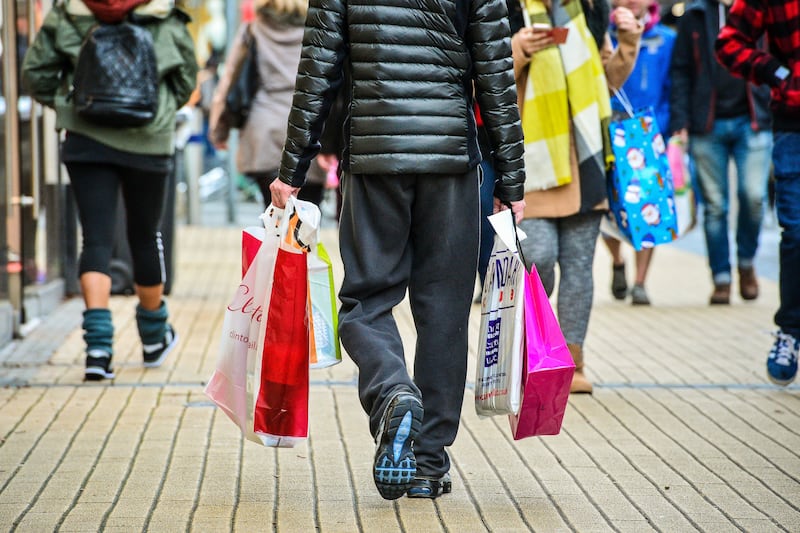Shoppers have benefited from retailers cutting prices this month in a bid to revive consumer demand, new figures show.
The rate that prices are rising in shops across the country has returned to “normal” levels, according to an influential retail group.
Shop prices in May were 0.6% higher than a year earlier, the lowest growth since November 2021, the British Retail Consortium (BRC)-NielsenIQ Shop Price Index found.
The figure is down from 0.8% in April and below the three-month average rate of 0.9%.
The survey period covered the first week of May.
It means that overall prices are still rising in shops – which include supermarkets, department stores, and fashion chains – but not as steeply as they have been.
But some items have seen prices fall compared with the previous year.
Products other than food continued to deflate this month, with prices 0.8% lower in May than the previous year, according to the survey.
Helen Dickinson, chief executive of the BRC, said: “In non-food, retailers cut furniture prices in an attempt to revive subdued consumer demand for big-ticket items, and football fans have been able to grab some bargains on TVs and other audio-visual equipment ahead of this summer’s Euros.”
Food prices continued to rise but at a rate of 3.2% in May, down from 3.4% in April.
Fresh food inflation fell to its lowest level since November 2021, while ambient food inflation – which means products that can be safely stored at room temperature, such as tinned goods, crisps, tea bags and biscuits – remained more stubborn.
The BRC said this was especially the case for sugary products which had felt the effects of higher global sugar prices.
Mike Watkins, head of retailer and business insight for NielsenIQ, said: “Across the industry, whilst inflationary pressure has eased and there is some improvement in shopper sentiment, the unseasonable weather has dampened retail sales so lower prices look set to continue and promotional activity is likely to drive demand.”
New official figures on Friday showed that retail sales across the UK fell by 2.3% in April, with poor weather deterring shoppers from the high street and the cost-of-living squeeze continuing to rein in spending.








